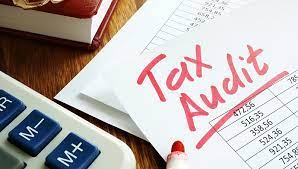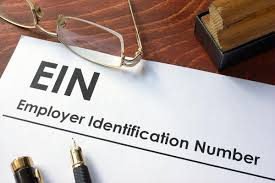Are you confused about the difference between an EIN vs tax ID number? How do I obtain a taxpayer identification number, or is it the same as your SSN? Don’t worry, we’re here to help! In this guide, we’ll explain the distinction between an EIN and vs tax ID number and provide you with step-by-step instructions on how to obtain a tax ID number. Plus, we’ll clarify whether a tax ID number is the same as your Social Security Number (SSN). By the end of this article, you’ll have a clear understanding of these concepts and be well-equipped to navigate the world of identification numbers for tax purposes.
Ein vs Tax ID
When comparing an EIN vs. a tax ID, it’s important to understand that they refer to the same thing. Both terms are used interchangeably to describe the nine-digit identification number issued by the IRS. This number is assigned to businesses and individuals for tax purposes. So, whether you hear someone mention an EIN vs tax ID, they are referring to the same unique identifier that helps track and distinguish taxpayers in various financial and legal transactions.
What Is a Tax ID?
A tax ID, also known as a taxpayer identification number, is a unique identification number assigned by the government. This number is used to track and identify individuals or businesses for tax purposes. It serves as a means to differentiate taxpayers and ensure accurate reporting. Obtaining a tax ID is essential for various financial transactions and obligations, such as filing tax returns and opening a business bank account. It also helps prevent identity theft by providing a secure identifier separate from personal information like Social Security Numbers (SSNs).
What Is an Employer Identification Number (EIN)?
An employer identification number (EIN) is a nine-digit identifying number provided to firms by the IRS. It is used for tax reporting purposes and is comparable to an individual’s Social Security Number (SSN). The EIN assists employers in identifying themselves for tax-related operations such as submitting tax returns, paying employees, and dealing with the IRS. It is required for enterprises that employ people, operates as partnerships or corporations, or conduct certain financial operations. Obtaining an EIN is a critical step in establishing a company’s tax identity and complying with legal obligations.
How to Get a Tax ID Number
To obtain a tax ID number, you can apply online through the IRS website. The process involves completing an application form with the necessary details about your business or personal information. Alternatively, you can apply by mail or fax by submitting Form SS-4. Once the application is submitted, the IRS will review it, and upon approval, they will assign you a tax ID number. It’s important to ensure accurate and complete information when applying to avoid any delays or issues. This procedure can help How to Get a Tax ID Number
Is the Taxpayer Identification Number the Same as Ssn
No, a taxpayer identification number (TIN) and a social security number (SSN) are not identical. Although both numbers serve identification purposes, they have distinct roles. The Social Security Administration assigns an SSN to individuals for employment, Social Security benefits, and personal identification purposes. Alternatively, a TIN is a broader term that encompasses various forms of identification numbers, such as an employer identification number (EIN) for businesses and an individual taxpayer identification number (ITIN) for individuals who do not qualify for an SSN. While an SSN is a type of TIN, not all TINs are also SSNs.
Can I Use My Ein as a Tax ID Number?
Yes, you can use your EIN (Employer Identification Number) as your tax ID number. The EIN serves as a unique identifier for your business, fulfilling the same function as a tax ID number. It is for tax-related purposes, including filing tax returns, paying taxes, and conducting financial transactions. When it comes to identifying your business for tax obligations, your EIN is the designated number to provide.
Is My Ssn My Tax ID Number?
No, your SSN (Social Security Number) is not the same as your tax ID number. While your SSN is a personal identifier, the tax ID number allocates to businesses and individuals for tax purposes. Your SSN is for personal identification and various government programs, whereas a tax ID number, such as an EIN or ITIN, is specific to tax-related activities like filing tax returns and paying taxes. Therefore, these two numbers serve different purposes in the context of taxation.
What Is the Difference Between Ein, Tin, and Ssn?
An EIN (Employer Identification Number) is a nine-digit identifier assigned by the IRS to businesses for tax purposes. It is used to track and distinguish businesses for tax-related activities like filing returns and paying taxes. On the other hand, a TIN (taxpayer identification number) is a broader term that encompasses different types of identification numbers, including the EIN. It includes other identifiers like the Individual Taxpayer Identification Number (ITIN), used for individuals who are not eligible for an SSN (Social Security Number).
While both the EIN and TIN are tax identification numbers, the SSN serves a different purpose. The Social Security Administration issues an SSN, a unique nine-digit number primarily for individual identification. People use it for various purposes, such as employment, Social Security benefits, and personal identification. Unlike the EIN and TIN, the SSN is specific to individuals and is not meant for business or tax-related activities.
In summary, the EIN is an identifier for businesses; the TIN is a broader term that encompasses various tax identification numbers, including the EIN; and the SSN is a personal identification number for individuals. Each number serves a distinct purpose within the realm of taxation and identification.
What Is My Tax ID Number?
Your tax ID number is a unique identification number which allocates to your business for tax purposes. It serves as a means to track and distinguish taxpayers when engaging in various financial and legal transactions. Depending on your situation, your tax ID number could be an EIN (Employer Identification Number) for businesses, an SSN (Social Security ) for individuals, or an ITIN (Individual Taxpayer Identification Number) for individuals who are not eligible for an SSN. This number is also crucial for fulfilling your tax obligations and ensuring accurate reporting to the relevant tax authorities.
Can I Use My Ein to Start a Business?
Yes, you can start a business using your EIN (Employer Identification Number). Obtaining an EIN is a critical step in forming a business entity such as a corporation, partnership, or LLC (limited liability company). The EIN is a unique identity for your company that is used for tax purposes such as filing tax returns, paying taxes, and conducting financial transactions. The IRS (Internal Revenue Service) requires it for enterprises that have workers or meet certain conditions. By using your EIN, you ensure that your company receives proper recognition and remains in compliance with tax requirements from the start.
What Is the Purpose of an Ein?
The purpose of an EIN (Employer Identification Number) is to provide a unique identifier for businesses. Individuals employ it for tax-related tasks such as submitting tax returns, paying taxes, and communicating with the IRS. The EIN enables accurate reporting and aids in corporate differentiation. Businesses with employees, partnerships, corporations, or those engaged in particular financial transactions must have it. The establishment of a business’s tax identity and compliance with legal regulations both depend on obtaining an EIN. Businesses may efficiently carry out a range of financial tasks and meet their tax requirements thanks to it.
Does Everyone Have a Tax ID Number?
Everyone does not have a tax ID number. For tax purposes, tax ID numbers are often provided to corporations and individuals. Individuals may use their Social Security Number (SSN) as their tax identification number, while corporations may use their Employer Identification Number (EIN). Individuals who are not eligible for an SSN, on the other hand, may receive an Individual Taxpayer Identification Number (ITIN) as their tax ID. So, while many people have a tax ID number, their circumstances and tax obligations may not compel everyone to have one.
Types of Tax Identification Numbers
Tax identification numbers are classified into five types:
- Employer Identification Number (EIN)
- Social Security Number (SSN)
- Individual Taxpayer Identification Number (ITIN)
- Adoption Taxpayer Identification Number (ATIN)
- Preparer Taxpayer Identification Number (PTIN)
Which Tax ID is Needed For My Business?
The specific tax ID needed for your business depends on its structure and requirements. Sole proprietors can use their Social Security Number (SSN) or choose to obtain an Employer Identification Number (EIN). Partnerships and corporations must have an EIN, while individuals not eligible for an SSN may need an Individual Taxpayer Identification Number (ITIN). It’s essential to understand the tax obligations and legal requirements for your business structure to determine the appropriate tax ID to obtain. Consulting with a tax professional can provide guidance tailored to your specific business needs.
FAQs
What is an EIN example?
EIN is a 9-digit number (for example, 12-3456789) assigned to employers, sole proprietors, corporations, partnerships, estates, trusts, some people, and other entities.
Is a US address required for an EIN?
The IRS will request the actual location of your firm when you register for an EIN. In this case, your registered agent’s address cannot be used. The IRS is interested in knowing where the firm is physically located. This does not have to be a US address; it might be any address on the planet.
How can I validate my TIN?
There are still options for obtaining your TIN. To begin, you might ask your employer to validate your TIN through the EREG system. Second, you can contact or visit your RDO to have your TIN verified.
Related Articles
- WHAT IS TIN NUMBER: Examples, How to Get It & Difference
- HOW TO GET STARTUP BUSINESS LOANS WITH NO REVENUE IN 2023
- HOW TO GET AN EIN NUMBER: Detailed Guide
- EMPLOYEE ID NUMBER: Meaning, How to Find it, State, Federal & Generator






